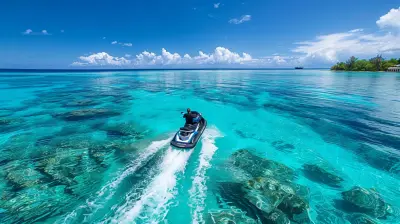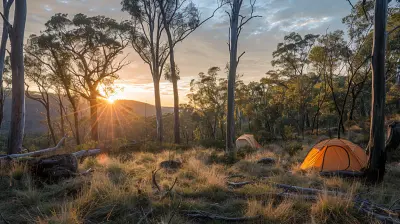Camping on a Budget: How to Save Money While Exploring Nature
13 May 2025
Camping is one of the best ways to enjoy the great outdoors without breaking the bank. But let’s be real—costs can add up quickly if you’re not careful. Between gear, food, and park fees, what seemed like a cheap getaway can turn into a pricey adventure.
The good news? You don’t need a fortune to enjoy nature. With a little planning and creativity, you can embark on an unforgettable camping trip without emptying your wallet. Grab your backpack, tighten your budget, and let’s dive into some smart money-saving tips! 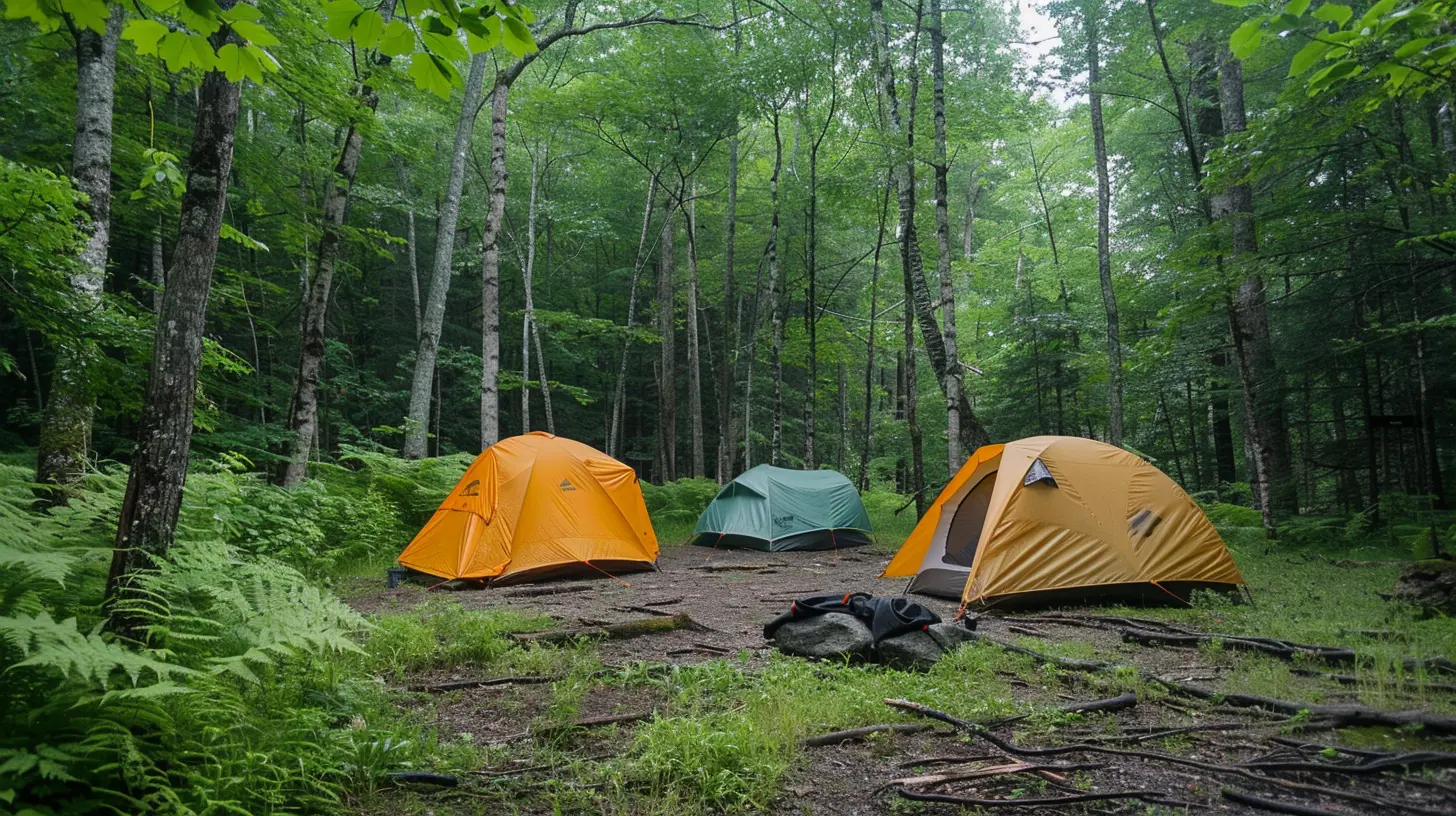
1. Choose Budget-Friendly Camping Destinations
Not all campgrounds are created equal—some charge hefty fees, while others are free or dirt cheap. When planning your trip, look for:- National Forests & Bureau of Land Management (BLM) Land: Many of these areas allow free dispersed camping. Just make sure you follow Leave No Trace principles!
- State Parks: They usually have lower fees than national parks and can be just as scenic.
- Discounts & Passes: If you plan to camp frequently, consider investing in an annual park pass. The America the Beautiful pass, for example, grants access to national parks and federal lands for $80/year.
Want to camp for free? Check out websites like FreeCampsites.net or apps like iOverlander to find hidden gems that won’t cost a dime. 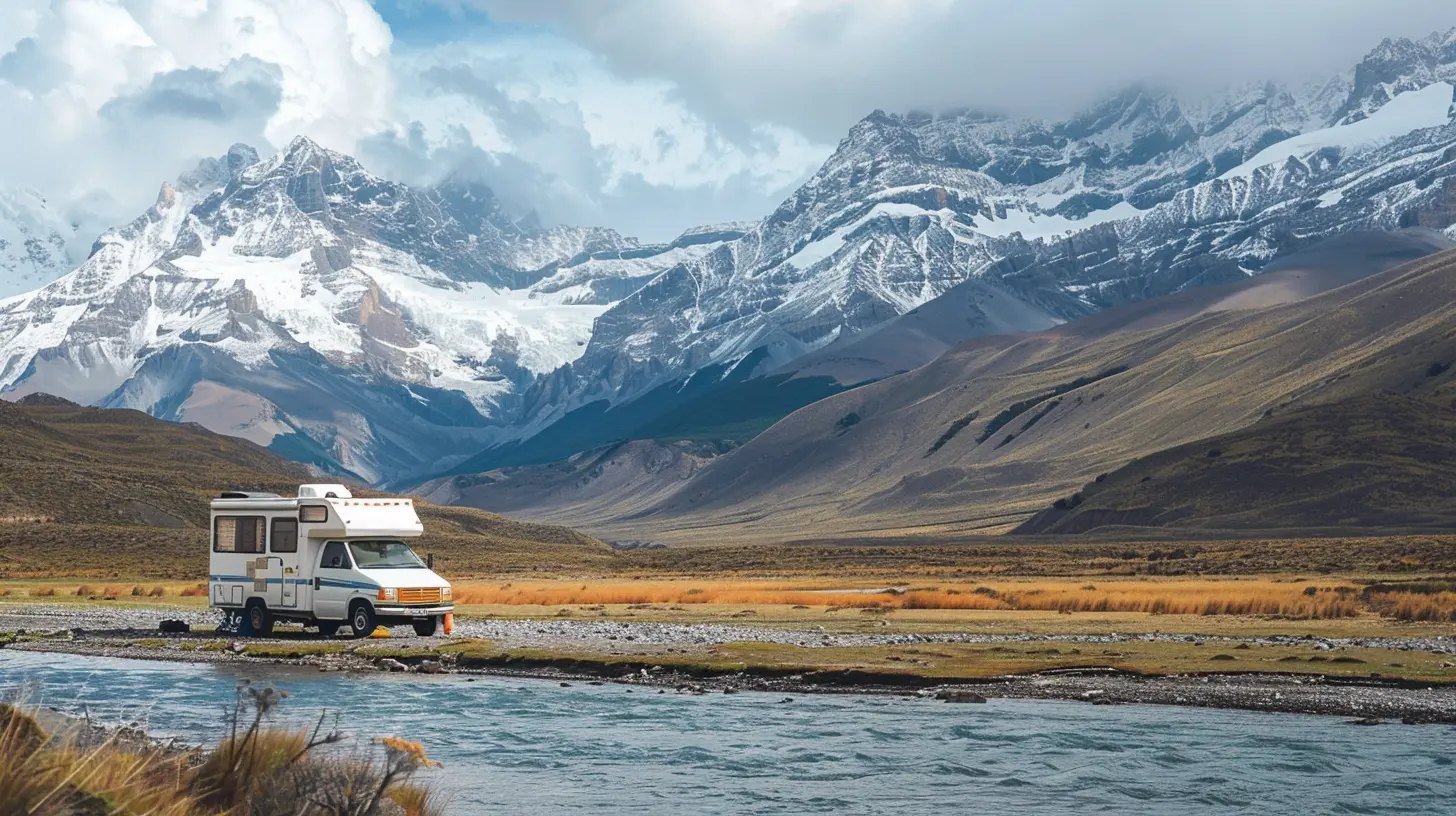
2. Use Affordable or Secondhand Camping Gear
Camping gear can be ridiculously expensive, but you don’t need top-of-the-line equipment to enjoy the outdoors. Here’s how to save:- Buy Used Gear: Check out thrift stores, Facebook Marketplace, or Craigslist for cheap camping essentials.
- Borrow From Friends & Family: Need a tent or a sleeping bag? Ask around—chances are, someone you know has extra gear collecting dust.
- DIY Camping Gear: Get creative! Instead of buying a fancy camping stove, use a simple homemade alcohol stove or cook over a campfire.
- Rent Instead of Buying: If you camp only a few times a year, renting gear from outdoor stores (like REI) might be more cost-effective. 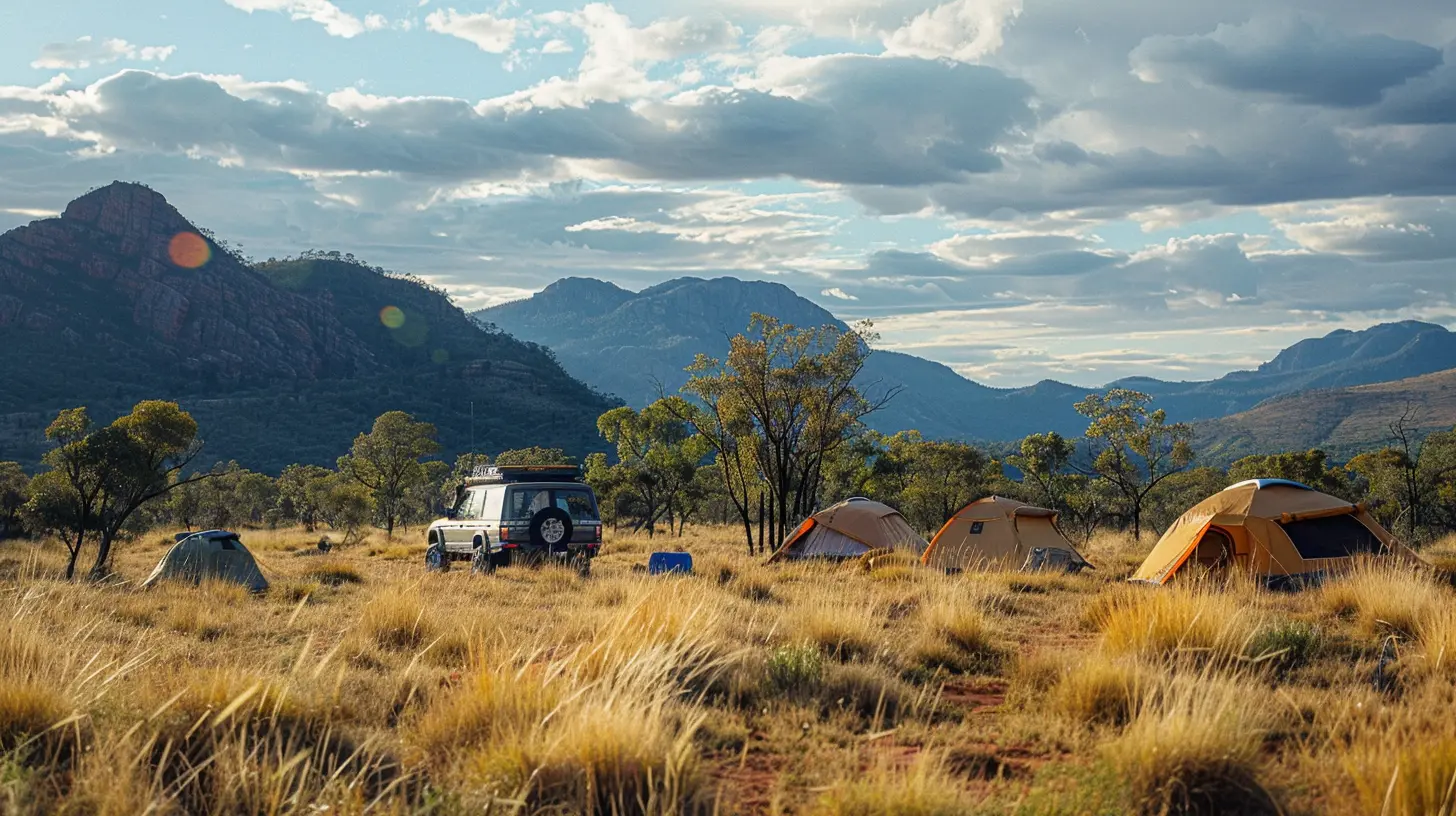
3. Plan Your Meals & Bring Your Own Food
Eating out while camping can quickly drain your budget, so it’s best to bring your own food. Here’s how to save on meals:- Prep Meals at Home: Chop veggies, marinate meats, and portion out ingredients before you leave.
- Stick to Simple, Cheap Foods: Oatmeal, pasta, rice, canned beans, and peanut butter are budget-friendly and easy to cook.
- Use a Cooler Wisely: Instead of expensive ice packs, freeze water bottles—they keep food cold and double as drinking water when melted.
- Avoid Pre-Packaged Camping Meals: Those dehydrated backpacking meals are convenient but can cost $10–$15 per pack. Make your own by dehydrating meals at home.
Bonus tip: Cook over a fire instead of buying a portable stove—nature’s kitchen is free! 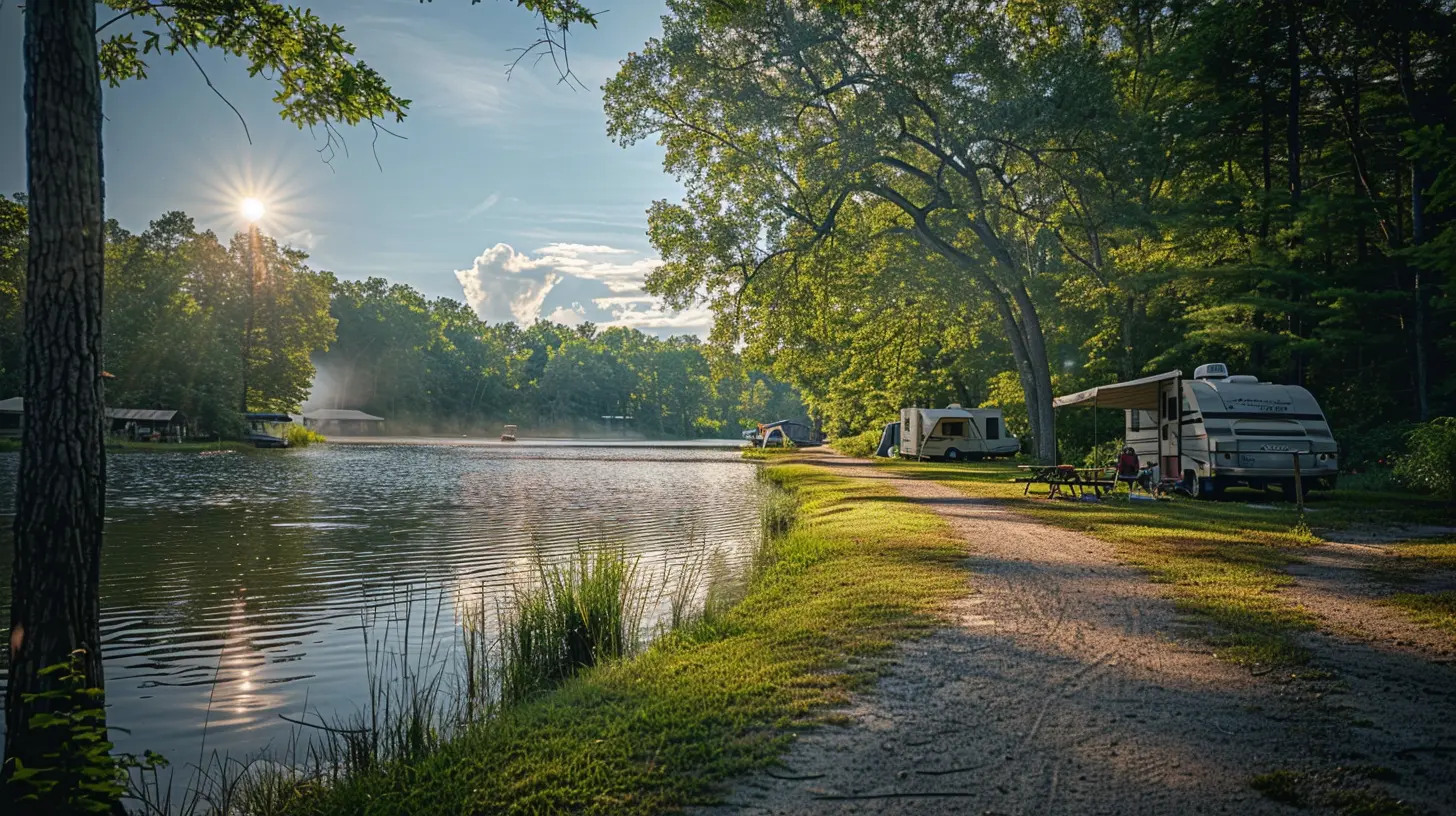
4. Minimize Travel Costs
Gas, tolls, and entrance fees can add up, especially if you’re driving long distances. Cut down on travel expenses with these tips:- Camp Close to Home: You don’t need to drive hundreds of miles to find a beautiful campsite. Look for local camping spots.
- Carpool With Friends: Split the cost of gas and make the trip more fun.
- Use Fuel Rewards Programs: If you’re driving, sign up for fuel rewards programs from gas stations to save on fuel.
- Avoid High-Priced Tourist Areas: Popular campgrounds near famous landmarks tend to have higher fees. Find off-the-beaten-path sites for a more budget-friendly experience.
5. Ditch the Fancy Gear & Use Budget-Friendly Alternatives
Outdoor gear companies love to convince you that you need the latest and greatest gadgets. Truth is, you can camp just fine with budget-friendly alternatives:- Sleeping Bag Substitute: Use thick blankets or layer clothing instead of an expensive sleeping bag (as long as temperatures allow it).
- Camping Pillow Hack: Instead of buying a $30 inflatable pillow, stuff clothes into a small bag or hoodie.
- DIY Lantern: Place a headlamp facing into a water jug for instant, soft lighting.
- Use Household Items: Instead of buying fancy gear, use what you already have—plastic containers for food storage, an old yoga mat for padding, or kitchen utensils for cooking.
Camping is about experiencing nature, not showing off expensive gear. Stay practical!
6. Be Smart About Firewood & Camping Supplies
Firewood and camping supplies can be surprisingly expensive if you buy them at the campground store. Instead, try these tricks:- Collect Your Own Firewood (If Allowed): Check the campground rules first—some places prohibit gathering wood.
- Buy Firewood Locally: Campground firewood is often overpriced. Buy from local stores or roadside vendors for cheaper bundles.
- Bring Your Own Essentials: Things like paper towels, trash bags, and aluminum foil can be overpriced at remote stores. Pack them from home.
A little preplanning can save you from spending extra on supplies.
7. Take Advantage of Free Activities
One of the best things about camping? The entertainment is free! Instead of spending money on expensive excursions, try:- Hiking: Free and fantastic exercise.
- Swimming: Many campgrounds have lakes or rivers perfect for a refreshing dip.
- Fishing: Some areas allow free fishing—just check local license requirements.
- Stargazing: Grab a blanket, lay back, and enjoy the night sky.
- Photography & Journaling: No need for fancy tours; just capture the beauty around you.
Nature itself is the main attraction—no need to pay for expensive activities when camping offers plenty to do for free.
8. Avoid Overpaying for Campsite Fees
Campsites can vary widely in price, but with a little research, you can avoid unnecessary fees.- Stay on Free Public Lands: National forests, BLM land, and some wildlife management areas offer free dispersed camping.
- Opt for Basic Campgrounds: Full-service RV parks with power hookups can be pricey. If you don’t need electricity or water hookups, choose a more primitive (and cheaper) site.
- Camp Outside Popular Parks: Camping inside a national park is often expensive. Instead, find campgrounds just outside the park boundaries to save money.
Looking for a deal? Some campgrounds offer discounts for military members, students, or seniors—always ask!
9. Pack Smart to Avoid Last-Minute Costs
One of the biggest budget busters? Forgetting essential gear and having to buy overpriced replacements at a campground store. Avoid this mistake by:- Creating a Checklist: Make sure you have all your essentials before leaving home.
- Packing Multi-Purpose Items: A bandana can be a towel, a potholder, or even a makeshift filter for water.
- Bringing Extra Batteries & Chargers: Buying these at a campsite store can cost triple the normal price.
A little organization before your trip can prevent unexpected expenses.
10. Camp During the Off-Season
If you want to save even more, consider camping in the off-season. Many campgrounds lower their fees during less popular times of the year.- Spring & Fall: Cooler weather but fewer crowds and cheaper rates.
- Midweek Trips: Avoid weekends when prices and demand are higher.
- Avoid Peak Holidays: Camping on holiday weekends often means sky-high prices.
Off-season camping not only saves money but also offers a quieter, more peaceful experience.
Final Thoughts
Camping doesn’t have to be expensive. With a bit of strategic planning, creativity, and a willingness to embrace simplicity, you can have an unforgettable adventure without draining your wallet.By choosing budget-friendly destinations, using secondhand gear, and planning meals wisely, you’ll keep costs low while still fully enjoying nature’s beauty. So pack light, spend smart, and get ready to sleep under the stars—without spending a fortune!
all images in this post were generated using AI tools
Category:
Camping TravelAuthor:

Tracie McAdams
Discussion
rate this article
4 comments
Azurael McDonough
This article offers practical tips for budget-conscious campers, emphasizing cost-effective gear, meal planning, and choosing affordable campsites. By highlighting creative solutions, it empowers readers to enjoy nature without financial strain, enhancing their overall outdoor experience.
May 21, 2025 at 3:05 AM

Tracie McAdams
Thank you for your thoughtful comment! I'm glad the article resonates with readers and provides useful strategies for enjoying nature affordably. Happy camping!
Margaret Baker
Great tips! Camping on a budget makes nature accessible and enjoyable for everyone. Happy exploring!
May 15, 2025 at 2:31 PM

Tracie McAdams
Thank you! I'm glad you found the tips helpful. Enjoy your adventures in nature!
Barrett
Nature's beauty is best enjoyed simply.
May 15, 2025 at 3:20 AM

Tracie McAdams
Absolutely! Embracing nature's beauty doesn't have to be costly—it's about enjoying the moment and the surroundings.
Wade Pace
This article effectively highlights practical budget-saving tips for camping, making nature accessible while enhancing the outdoor experience. Great insights!
May 13, 2025 at 4:25 AM

Tracie McAdams
Thank you! I'm glad you found the tips helpful for enhancing your outdoor experience on a budget. Happy camping!

